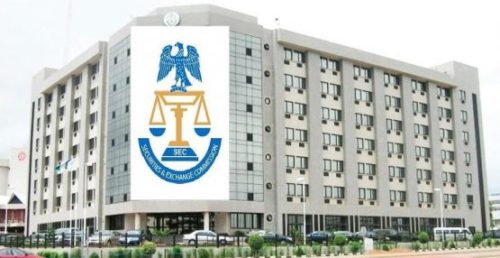The Securities and Exchange Commission (SEC) on Sunday said that the country’s infrastructure deficit would hit 878 billion dollars by 2040 and called for active utilisation of green bond for infrastructural gap.
The commission’s Acting Director-General, Mary Uduk, said this at the 2018 annual workshop organised by the Capital Market Correspondents Association of Nigeria (CAMCAN) in Lagos.
She said that Nigeria should tap into green bond opportunities, adding that the commission would continue to promote an active enabling and regulative environment for its issuance.
“The future holds opportunities for renewable energy, energy efficiency, infrastructure, food, agriculture and the task ahead is to ensure funds are channeled to green projects with multiple socio-merits,” Uduk said.
She said there must be more domestic participation in green bonds investment for Nigeria to claw its way out of deficit in infrastructure, power and energy, transportation and eliminating environmental degradation.
Uduk, who was represented by Head, Registration and Market Infrastructure Department, SEC, Emomotimi Agama, said that it was necessary for Nigeria to stand at the fore-front of innovations and initiatives.
She said that the second tranche of green bonds, which had been issued, presented an opportunity for the country to solve its infrastructural deficit.
“The biggest opportunity, to my mind, which green bond issuance will present, is the potential to solve Nigeria’s infrastructural deficits, improve agriculture and alleviate poverty while also protecting the environment – a multi-faceted strategy,” she said.
Also speaking, the Managing Director of FMDQ OTC Securities Exchange, Bola Onadele, said that $155 billion had been realised from the green bonds issuance, thereby gaining attention of investors.
Onadele who was represented by Emmanuel Etaderhi, Senior Vice President, Economic development division at the Exchange, said the country’s resources was not growing in tandem with the rising population.
He said that the reason for Nigeria’s woeful performance in the power and energy sector was due to its inability to tap into energy utilisation from the sun like other European countries.
Copyright Ships & Ports Ltd. Permission to use quotations from this article is granted subject to appropriate credit given to www.shipsandports.com.ng as the source.
